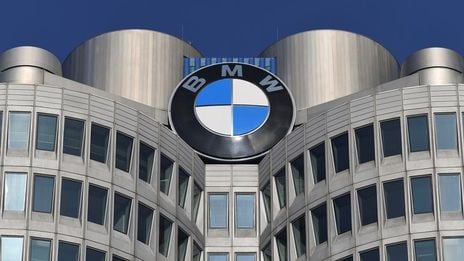MUNICH (dpa-AFX) - For the first time, China's major e-car congress WNEVC has taken place outside the People's Republic - Wednesday's premiere was at the IAA in Munich. Addressing some 500 participants, China's Vice Minister of Industry Xin Guobin began by thanking China for its help in building up its auto industry. Until recently, foreign automakers in China were required to bring Chinese partners into their factories. Now, Chinese manufacturers, now successful in their home country, want to conquer the European market.
China already ahead of Japan and South Korea in EU imports.
"Chinese manufacturers are pushing massively into the European market, and with thoroughly competitive products," Alexander Wachtmeister, an industry expert at management consultancy Boston Consulting, reported in the run-up to the IAA. According to the European manufacturers' association Acea, 552,000 cars from China were already exported to the EU in 2022, six percent of all new registrations. Among the countries of origin outside the EU, China was thus in first place for the first time, ahead of the UK, South Korea and Japan.
On German roads, the new challengers are "still not very visible," said Stefan Bratzel of the Center of Automotive Management (CAM) in Bergisch Gladbach. The most successful so far has been the MG brand of VW partner Saic, with a good 17,000 e-cars. China's market leader BYD, which has just replaced VW as number one, has so far produced just over 1400 vehicles in Germany.
China as a fitness center for Volkswagen and Co.
The new challengers are increasing the pressure on European manufacturers. "China has become a fitness center for us," Volkswagen CEO Oliver Blume said at the congress. To keep up there, he said, they also need to get up to "China speed" themselves.
"The market entry of Chinese manufacturers will boost innovation in the European auto industry," Wachtmeister said. When it comes to connectivity and infotainment, Europe's carmakers need to catch up, cut costs and pick up the pace, he said.
According to consulting firm McKinsey, it takes half as long to develop a vehicle in China as it does in Europe. Instead of four years, the best Chinese manufacturers managed it in two. While all German manufacturers have a total of around 160 e-models in their range so far, the Chinese launch 70 new ones every year. And at lower prices: The cost advantage is 20 to 30 percent, according to McKinsey.
Chinese and BMW also focus on hydrogen cars
WNEVC President Wan Gang emphasized that China is not only betting on battery cars (BEV), but on a combination of BEV, plug-in hybrid and hydrogen fuel cell cars (FCV). "Hydrogen is an important building block." Thousands of cabs are already using it in Beijing, he said.
BMW CEO Oliver Zipse said he could envision hydrogen powertrains for BMW's next generation, the "New Class" launching in 2025. "We are convinced that fuel cell and BEV technology complement each other perfectly. Hydrogen is the missing link to CO2-free mobility for long distances and in regions without sufficient charging networks." Fuel cells save scarce battery raw materials and hydrogen can be easily stored and transported, he said.
Taiwan not an issue: auto bosses aim for more cooperation
China's threats to invade the democratic island republic of Taiwan and the possible consequences for the German auto industry were not addressed by anyone at the WNEVC congress. Instead, all participants unanimously evoked the "win-win" prospects of deepening cooperation both in China and in Europe.
German automakers maintain large factories in China, are expanding their research and development there, sell a third of their vehicles there, and need battery raw materials and components from China. The Chinese auto industry has established itself as a supplier and now also wants to make money by selling cars, digitization and mobility services in Europe.
Mercedes-Benz CEO Ola Källenius called for more free trade and cooperation and warned against protectionism. He said he hoped for closer and deeper cooperation with his Chinese partners. VDA President Hildegard Müller praised the German government's course of not detaching the economy from China as a market and supplier, but positioning itself more broadly. Representing the Federal Ministry of Economics, Bernhard Kluttig called for fair and transparent cooperation and fair competition./rol/DP/ngu












